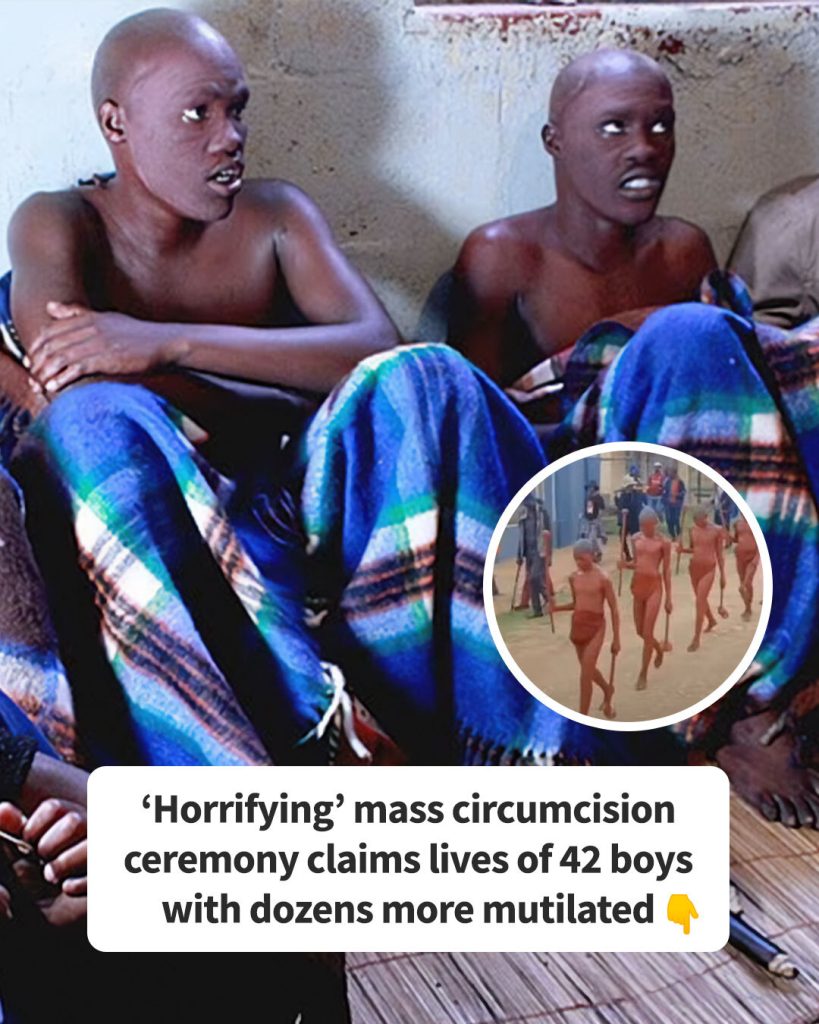In a deeply disturbing revelation, South African NGO Sonke Gender Justice has revisited a 2012 report claiming that 42 young boys died in just three weeks due to illegal initiation circumcisions. These traditional but unauthorized rites of passage continue to spark concern, especially as South Africa’s provincial governments pledge to implement a “zero tolerance” policy toward unlicensed initiation schools.

The cultural practice, most commonly observed among the Xhosa ethnic group—whose population in South Africa exceeds ten million—marks the transition from boyhood to manhood. Typically, it involves relocating boys to isolated huts in the wilderness, where they are kept for a month. These ceremonies are intended to be spiritual journeys, infused with tribal wisdom and ritual. However, the growing number of deaths, disfigurements, and traumatic consequences has brought the practice under intense national and international scrutiny.
In 2012, Sonke Gender Justice released shocking statistics: 42 boys had died in the span of three weeks, nearly double the 26 fatalities reported the previous year. The boys were subjected to crude circumcision procedures, often carried out with makeshift tools like handmade knives or even razor blades. These unregulated operations lack the oversight and hygiene standards required for such a dangerous medical procedure, leading to tragic results including hemorrhage, infection, and mutilation.
Photos from the time show young boys wrapped in blankets, huddled together after mass ceremonies—many of them visibly injured. While these images gripped the public’s attention, Sonke Gender Justice claims the broader societal response was disturbingly muted. Their report posed hard-hitting questions: “Why do we, as a caring, compassionate, democratic society, look the other way? Why do we allow certain cultural practices to rob young people of their future?”
Sisonke, another local group—its name meaning “we are together” in Zulu—echoed similar sentiments. They pointed out that equating masculinity with enduring a hazardous circumcision ritual does not only endanger lives but perpetuates outdated notions that harm society at large. “The idea of what it means to be a ‘proper’ man,” the organization stated, “has been reduced to a dangerous procedure that too often results in death or lifelong injury.”
This haunting legacy continued into recent years. In 2024 alone, there were 93 reported deaths and 11 amputations related to illegal circumcision schools. Many of these cases were in the Mpumalanga province, where the Department for Co-Operative Governance, Human Settlements, and Traditional Affairs issued warnings against unlicensed traditional surgeons. Officials emphasized the importance of only allowing trained medical professionals to perform such procedures and urged parents to confirm the legitimacy of initiation schools before enrolling their children.
As part of its 2024 safety protocol, the government reviewed 405 applications to run initiation schools, approving 403 while rejecting two due to non-compliance. The official initiation season was declared from June 21 to July 21, with stern consequences promised for anyone operating outside this timeframe. These regulations aimed to curtail the operations of rogue practitioners, many of whom view the practice as a business opportunity rather than a sacred duty.
Despite circulating rumors that 39 initiates died during the 2025 season, the South African government and mainstream local media have not confirmed any fatalities this year. This lack of transparency has left the public and advocacy groups uneasy. In an environment where accountability is vital, silence can be as dangerous as negligence.
Internationally, the United Nations has come under fire for its involvement in circumcision efforts in Africa. Through its Voluntary Medical Male Circumcision (VMMC) initiative, the UN has promoted circumcision as a method of HIV prevention. The campaign is built on research suggesting that circumcised men may have a lower risk of contracting the virus. However, critics argue that the program has morphed into a multimillion-dollar sub-economy that capitalizes on the continent’s public health crisis.
According to Child Rights International Network (CRIN), the circumcision campaign has evolved into a commercial enterprise. “Circumcision seems like the answer to those working within the global AIDS response,” the group argues, “because the number of people who can be targeted for circumcision business runs into hundreds of millions.” They estimate that millions of male children are processed annually to keep the initiative financially sustainable.
This monetization of cultural and medical practices raises serious ethical concerns. When profit becomes a driving force behind procedures that carry such significant risk—especially when conducted on minors without informed consent—the line between aid and exploitation becomes dangerously blurred.
These developments underscore a broader issue in South Africa: the complex tension between cultural tradition, public health, and human rights. While many South Africans see initiation as a sacred and defining life event, the repeated loss of young lives begs for reform. As the country continues to wrestle with its identity in a modern democracy, the preservation of culture must be weighed against the moral imperative to protect its youth.
Parents, community leaders, and lawmakers alike must ask themselves whether tradition should come at the cost of children’s lives. Stronger enforcement, public education, and safe alternatives must become national priorities. The silence that often follows these tragedies must be replaced with open dialogue, accountability, and, above all, action.
Until then, the death toll from illegal initiation schools remains a chilling reminder of what happens when ancient practices are left unchecked in a modern world.





